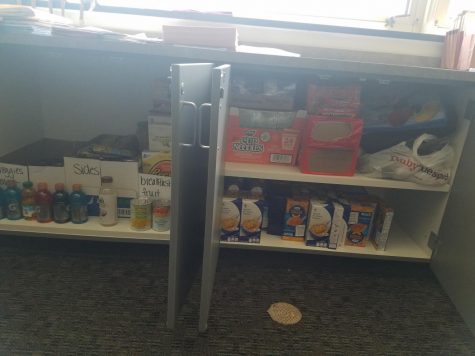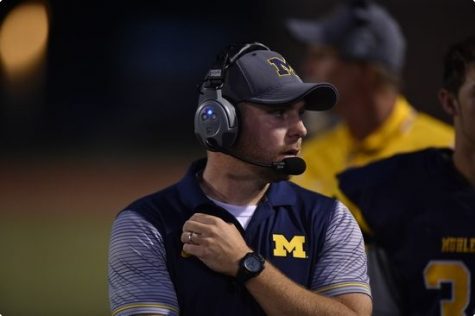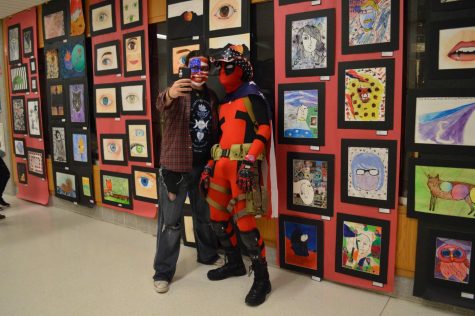Behind-the-Scenes Stars Helped Make Mary Poppins a Hit
In every musical production, there are the stars on stage — and the stars who are never seen.
They hide backstage and pull the strings to make the production as successful as possible. These stars are known as stage crew.
While never seen by the audience, their part is just as big as the actors on stage. They work the sound, lighting, curtains, backdrops and props.
The actors provide the singing and dialogue, while the stage crew makes sure that goes smoothly and soundly — along with providing the all-important context of the play.
Stage crew was especially important in this year’s musical, Mary Poppins, because it was one of the most technical productions ever attempted at the high school.
“It was a lot more complex than others with all of the other props and effects,” Sarah Weber, a senior in stage crew, said.
These included fog, flying, confetti cannons, a self-destructive kitchen set, and flying kites.
Each crew member working almost 100 hours, some longer. Rehearsals were almost everyday, so that each crew member learned their cues like the back of their hands and practiced their positions during the production to perfection.
Mr. Robert Ramsey, a long-term substitute in the business department, is the teacher in charge of the stage crew. He said actual technical planning for the show began about 3 1/2 weeks before the show.
“I’ve had a lot of fun with it,” he said. “It’s been a great learning experience and I had a lot of fun getting to know the kids on stage crew.”
The larger set pieces were handmade by a group of parent volunteers and some were borrowed from other schools, while some smaller set pieces were reused from other productions, he said.
“The majority of the big pieces on stage were built specifically for the show, from scratch on the stage,” he said.
There weren’t any major technical difficulties, but there were small ones such as getting the kitchen table to “magically” come back together after falling down.
When things don’t go according to plan, stage crew needs to adapt. The fog machine on stage right kept overheating, but the stage crew had the fog machine on stage left compensate with extra smoke so the audience wasn’t able to tell the difference.
Overall, things went well. “I’d give it an 8 out of 10,” Weber said.
Another senior stage crew member, Liam Easterly, agreed.
“With the resources and limitations we had, I think things went really well,” he said. “It was a lot more complex and had a lot more technical components” than other productions.
The job of a stage crew member is a lot of work but not one that come with glory.
Easterly said, “I don’t think we get enough recognition at all.”
Weber said, “I think we get enough recognition, but not enough respect.”











